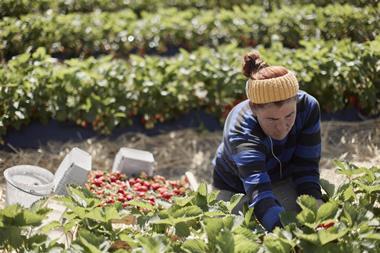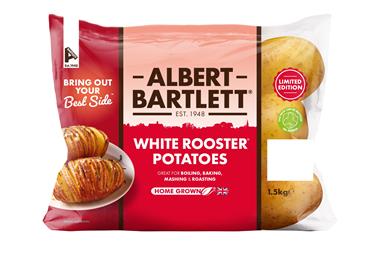Alistair Smith, co-ordinator of Banana Link, says those at the bottom of the banana supply chain are not getting a fair deal
More and more Britons want to buy food that is produced in a way that respects the health, safety and dignity of farmers and factory workers, and that does not leave environmental damage for our children.
But while traceability may be an industry buzzword, putting it into practice reveals real situations where conditions may not be of a standard that consumers expect, or like.
Bananas are a case in point. They remain at the heart of most of the controversies confronting retailers and their supply chains. The skin of that innocent-looking fruit - in human, environmental and economic terms - is becoming more and more transparent, and there is good reason to be concerned at what we see.
In today’s competitive environment, the banana is the subject of fierce price competition. The latest banana price war began nearly three years ago, although it has taken an interesting turn in the past few weeks. Retail prices have climbed up a little towards where they were before summer 2002, as the cost of EU import licences has increased. But even taking this into account, bananas are still much cheaper at retail level than they were in the late 1990s.
So, what happens at the bottom of the supply chain when a retailer slashes the selling price, but wants to preserve its net margin?
Quite simply, those with the least bargaining power lose out. Plantation and pack-house workers, as well as small-scale banana producers who have managed to survive the cold winds of market concentration and trade liberalisation, find that a living wage - or a fair price - has become little more than a distant memory.
Is this wage poverty any more acceptable than any other sort of human misery?
Shoppers are fast waking up to the realities of the supply chain and expect retailers to act responsibly. The inequities of the banana trade could one day return to haunt those retailers who perpetuate them with their cut-throat buying policies.
Would you like to write a Talking Point? We’re looking for contributions covering hot topics in the meat, fish and fresh produce supply chains
Email richard.clarke@william-reed.co.uk or call him on 01293 610404
More and more Britons want to buy food that is produced in a way that respects the health, safety and dignity of farmers and factory workers, and that does not leave environmental damage for our children.
But while traceability may be an industry buzzword, putting it into practice reveals real situations where conditions may not be of a standard that consumers expect, or like.
Bananas are a case in point. They remain at the heart of most of the controversies confronting retailers and their supply chains. The skin of that innocent-looking fruit - in human, environmental and economic terms - is becoming more and more transparent, and there is good reason to be concerned at what we see.
In today’s competitive environment, the banana is the subject of fierce price competition. The latest banana price war began nearly three years ago, although it has taken an interesting turn in the past few weeks. Retail prices have climbed up a little towards where they were before summer 2002, as the cost of EU import licences has increased. But even taking this into account, bananas are still much cheaper at retail level than they were in the late 1990s.
So, what happens at the bottom of the supply chain when a retailer slashes the selling price, but wants to preserve its net margin?
Quite simply, those with the least bargaining power lose out. Plantation and pack-house workers, as well as small-scale banana producers who have managed to survive the cold winds of market concentration and trade liberalisation, find that a living wage - or a fair price - has become little more than a distant memory.
Is this wage poverty any more acceptable than any other sort of human misery?
Shoppers are fast waking up to the realities of the supply chain and expect retailers to act responsibly. The inequities of the banana trade could one day return to haunt those retailers who perpetuate them with their cut-throat buying policies.
Would you like to write a Talking Point? We’re looking for contributions covering hot topics in the meat, fish and fresh produce supply chains
Email richard.clarke@william-reed.co.uk or call him on 01293 610404



















No comments yet